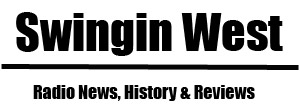What About the Songs Banned on Radio in US?

Music Censorship
History
FCC and The Radio Act

The Parents Music Resource Center (PMRC)
Reasons for Music Censorship
Criticisms
Sensitivity
Legal Issues
Music Censorship – VGFacts Five Trivia Feat. Yungtown
Notable Examples: Songs that are Banned/Censored in the US
“Brown Eyed Girl,” Van Morrison (June 1967)  | Originally named “Brown Skinned Girl,” this rock masterpiece is about an interracial couple. The title was changed by Morrison because he thought it would make it more radio-friendly. Some stations banned the line’s song, “Making love in the green grass,” even then. An edited version, nevertheless, was eventually released, altering it to “laughin ‘and a-runnin’, hey, hey.” |
“Strange Fruit,” Billie Holiday (1939)  | This song was a poignant and strong portrayal of the tragedy of a lynching by Billie Holiday. Upon its launch in 1939, it was banned from U.S. radio for its heavy, grim content. This was an album that the audience desperately wanted to hear at the moment, as bleak as the lyrics were. |
“LoveGame,” Lady Gaga (March 23, 2009)  | For their highly provocative themes, particularly the iconic line, “I want to take a ride on your disco stick,” this nightclub success was banned on the radio. Gaga was of the view that the radio officials were too harsh on her, but acknowledged that the line was by no means meant to be subtle. |
“God Only Knows,” The Beach Boys (July 11, 1966)  | In some parts of the U.S., this gentle, harmonious ballad from The Beach Boys’ most distinctive record, Pet Sounds, was prohibited for “blasphemy.” Even without any derogatory connotations, using the term “God” in an album was deemed inappropriate at the time. |
“Juicy,” The Notorious B.I.G. (August 8, 1994)  | Another indication of how catastrophic incidents can cause censorship is Rapper Notorious B.I.G.‘s song “Juicy”. After the September 11 attacks, the lyric “time to get paid/blow up like world trade” was banned from the album. |
“If U Seek Amy,” Britney Spears (March 10, 2009)  | The U.S. and the UK banned this notorious Britney‘s song whose chorus and title sound like “F-U-C-K me” when sung. U.S. radio stations changed the name to “If U See Amy” and BBC radio merely changed it to “Amy,” originally uncertain if the double entendre was really censorship content. |
“Physical,” Olivia Newton John (September 1981)  | Upon its launch, “Physical” became immensely popular in the U.S. and the UK, but due to its explicit nature and censored lines such as “There’s nothing left to speak about unless it’s horizontally,” several radio stations banned Olivia‘s album. |
“Imagine,” John Lennon (October 11, 1971)  | John Lennon‘s peace ballad has been both respected and despised globally as another target of Clear Channel’s post-9/11 prohibitions. It was blamed by religious groups for the line “imagine that there’s no heaven,” but that did not deter it from topping charts and receiving universal critical acclaim. |
“The Real Slim Shady,” Eminem (May 16, 2000)  | In June of 2001, the FCC fined Colorado Springs Radio (KKMG-FM) $7,000 for performing the altered version or clean version of this hit. Although no explicit language was used in this edition, the FCC imposed the fine because of the sexual imagery and themes of Eminem‘s single. |
“Like a Prayer,” Madonna (March 3, 1989)  | The “Like a Prayer” of Madonna sparked huge outrage worldwide. The music video was criticized by the American Family Association and the Vatican for its potentially blasphemous imagery. The song was even opposed by religious organizations after it was featured in a Pepsi commercial. Pope John Paul II, meanwhile, urged people soon after the song’s publication to boycott Madonna’s gigs in Italy in 1990. |
FAQ
Is music censorship a violation of freedom of speech?
The First Amendment states explicitly that it is not necessary for the U.S. government to create a rule restricting freedom of speech. Supporters of pro-censorship argue that music is not contained in the First Amendment, nor that music is a speech. Freedom of expression requires freedom of speech and the right to express an opinion of one’s own.
When did music censorship begin?
In a single lifetime of tolerance, from 1855 to 1865, under the reign of Tsar Alexander II, censorship reforms were introduced. There has been a transition from pre-censorship law (arbitrarily deciding in detail what may or may not be allowed) to a punitive mechanism focused on legal liability. For instance, in 1907, several states in America implemented the first censorship order in the United States, allowing the police chief to review all films to decide if they should be placed on screens.
Can the government ban song lyrics?
Obscenity, theft, child pornography, speech fundamental to criminal activity, speech that incites immediate lawless behavior, speech that violates intellectual property law, actual threats, and commercial threats are forms of speech that are granted less or no protection by the First Amendment (and thus may be limited). This also applies to music censorship as we mentioned in the article. Specifically, there are various grounds where music might be banned or censored.
Why should music be censored?
For many reasons, adults from all over the world claim the music should be censored. One of the explanations is that the number of suicide attempts would be limited by music censorship. This is because there are quite a lot of songs that talk of someone or someone killing themselves.
Another explanation why people say music should be censored is that addiction to drugs and sex would be decreased. Many videos of viral songs have people doing drugs and having sex. Consequently, people assume that exposure to these activities would be minimized by censoring certain tracks. People also think the songs would get better with the consort ship of music.
